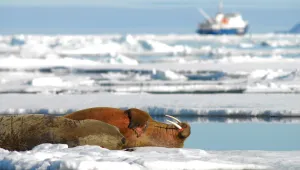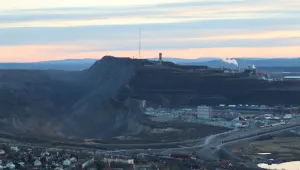Because the Arctic region is warming at twice the global average, a formerly white ocean is turning blue. For example, the spatial coverage of floating sea ice in the Arctic Ocean has diminished by more than 50% over the past 30 years and the volume of sea ice (sea ice thickness) has diminished by 75% in summer. This “opening” of a new, northern ocean impacts the geopolitical interests of not only the eight Arctic nations, but others, as well, in Asia and Europe. The new ocean provides greater opportunities for expanding marine activities, such as fishing, oil and gas exploration and development, destinational and trans-Arctic shipping, tourism, and scientific research. The increasing accessibility of the Arctic region also has major implications for national security interests, starting with domain awareness. Other changes in the Arctic have direct impacts on the lower latitudes, where the majority of the global population lives. For example, the increasing melting rate of glaciers and the Greenland ice sheet, contributes to sea level rise, globally which will challenge many coastal communities. The resulting national security concerns include exacerbated societal instabilities, human migration, degradation of critical military infrastructure, and compromised operational readiness.




